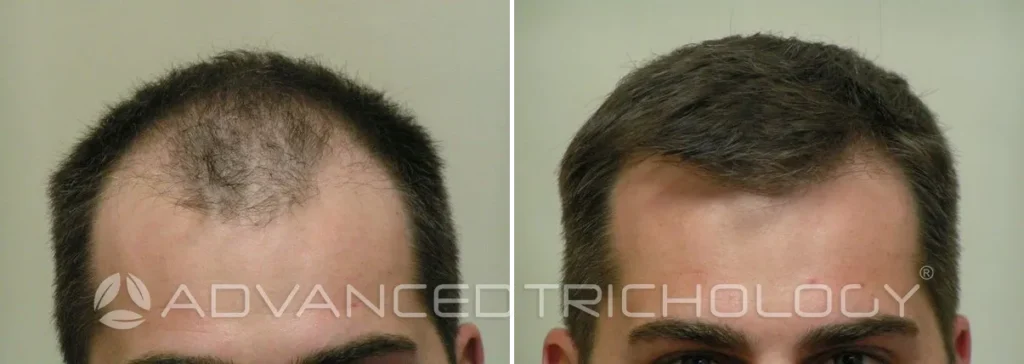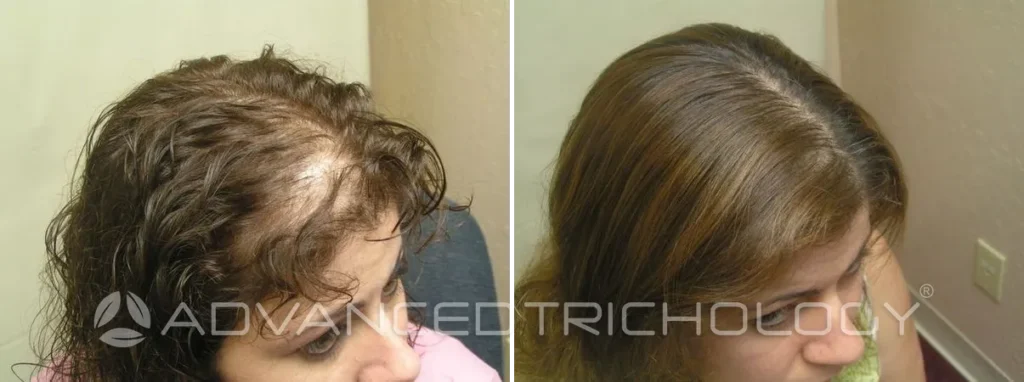Introduction
In the quest for a full head of hair, many turn to various treatments, including hair loss pills. These pills promise the hope of regaining lost hair and boosting self-confidence. But are hair loss pills safe? In this comprehensive guide, we’ll delve into the world of hair loss pills, examining their safety, effectiveness, and what you should know before considering them as a solution.
Effortless Hair Loss Prevention and Growth!
If you’re committed to preventing hair loss and promoting natural hair growth, look no further than Advanced Trichology. With a proven track record and a wide range of high-quality hair growth products suitable for both men and women, Advanced Trichology is a trusted name in the field. As an affiliate, I’ve had the privilege of witnessing the remarkable results their products can deliver. By using my unique affiliate link, you can access exclusive discounts on Advanced Trichology products through their website. It’s the perfect opportunity to take control of your hair’s health and vitality. Don’t let hair loss hold you back; start your journey towards healthier, fuller hair today!


Understanding Hair Loss
Before diving into the safety of hair loss pills, it’s essential to understand the root causes of hair loss. Hair loss can result from various factors, including genetics, hormonal changes, medical conditions, and lifestyle choices. The most common types of hair loss include male pattern baldness (androgenetic alopecia), female pattern hair loss, and alopecia areata. The type and cause of hair loss can influence the choice of treatment, including the use of pills.
The Promise of Hair Loss Pills
Hair loss pills, particularly those containing minoxidil or finasteride, have gained popularity as potential solutions to combat hair loss. These pills are often marketed as convenient, non-invasive treatments that can help regrow hair and restore confidence. However, it’s crucial to approach these promises with a balanced perspective.
Minoxidil and Hair Loss
Minoxidil is a key ingredient found in many hair loss pills and topical solutions. It was initially developed as an oral medication for high blood pressure before its unexpected side effect—excessive hair growth—led to its reformulation for hair loss treatment. Minoxidil pills and topical solutions work by dilating blood vessels, potentially promoting hair follicle function and hair growth.
The Safety of Minoxidil
Minoxidil has been widely used for hair loss treatment, and its topical form is FDA-approved. However, when considering oral minoxidil, the safety picture becomes less clear. While some small studies suggest its effectiveness, there is still a lack of high-quality research to fully support its safety and efficacy. Moreover, oral minoxidil can have side effects, including dizziness, heart palpitations, and fluid retention, which necessitates careful medical supervision.
Finasteride and Hair Loss
Finasteride is another medication commonly found in hair loss pills, and it works by inhibiting the conversion of testosterone into dihydrotestosterone (DHT), a hormone linked to hair loss. This medication is FDA-approved for both hair loss and benign prostatic hyperplasia (enlarged prostate).
The Safety of Finasteride
While finasteride is considered safe for hair loss treatment, it comes with its own set of considerations. For instance, it’s not recommended for pregnant women due to the risk of birth defects in male fetuses. Some individuals may experience side effects, including sexual-related issues, though these tend to be rare.
Oral vs. Topical Treatment
The choice between oral and topical treatment for hair loss depends on various factors, including individual preferences, medical history, and the severity of hair loss. Topical treatments like minoxidil are generally considered safe with fewer systemic side effects. In contrast, oral treatments like finasteride and oral minoxidil require careful monitoring due to potential systemic effects.
Are Hair Loss Pills the Best Option?
While hair loss pills can be a viable solution for some individuals, it’s essential to consider other options as well. Hair loss is a complex issue, and what works for one person may not work for another. Consulting a dermatologist with expertise in diagnosing hair disorders is crucial to determining the most suitable treatment plan.
Alternatives to Hair Loss Pills
Besides pills, various treatments are available for addressing hair loss. These include hair transplants, platelet-rich plasma (PRP) therapy, microneedling, and lifestyle modifications. Each option has its own set of advantages and limitations, making a personalized approach essential.
Conclusion: Balancing Hope and Caution
In the pursuit of luscious locks, it’s essential to strike a balance between hope and caution. Hair loss pills can offer potential benefits, but their safety and efficacy require careful consideration and medical supervision. Consulting with a healthcare professional and exploring various treatment options can help individuals make informed decisions about their hair loss journey.
Disclaimer: The information provided in this article is for informational purposes only and should not be considered as medical advice. Always consult with a qualified healthcare professional before making any decisions regarding your health or treatments. For more information, please read our Medical Disclaimer.
Frequently Asked Questions:
No, hair loss pills are not a guaranteed solution. Their effectiveness varies from person to person, and results may take time to become noticeable, if at all.
Common side effects can include dizziness, heart palpitations, and fluid retention. It’s essential to consult a healthcare professional to monitor and manage any adverse effects.
It’s generally not recommended, especially for medications like finasteride. Pregnant women should avoid these pills due to potential risks to the developing fetus.
Yes, alternatives include hair transplants, platelet-rich plasma therapy, microneedling, and lifestyle changes. Consulting a dermatologist can help determine the best option for you.
Yes, it’s highly recommended to consult a healthcare professional, preferably a dermatologist, before starting any hair loss treatment. They can assess your condition, recommend the most suitable treatment, and monitor your progress.




